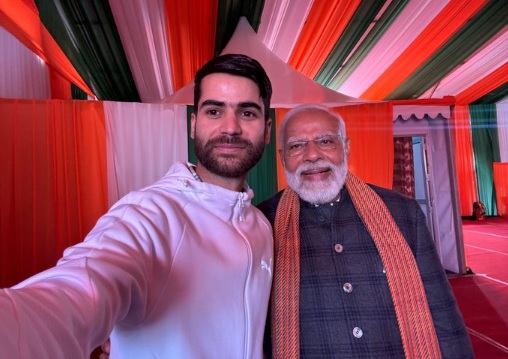
Yami Gautam Shines in Compelling Political Drama Amid Article 370 Review
Reviewing Article 370: “Uri: The Surgical Strike” not only introduced Bollywood to a rising star but also established a benchmark for modern war films. With its impressive cinematography, unprecedented strike sequences, superb direction, and concise editing, it resonated deeply with audiences and became a sleeper hit. Now, five years later, Aditya Dhar returns to explore Indian politics with “Article 370,” focusing on the ‘conflict economy’ of Kashmir. However, this time, he is not directing the film.
While “Article 370” may not match the sleekness and intensity of “Uri: The Surgical Strike,” it still makes a significant impact. The impactful opening sequence by Ajay Devgn effectively sets the film’s tone. The story centers around ID field officer Zooni Haksar, who successfully eliminates Burhan Wani, a Mujahideen leader and the son of a headmaster, in an encounter. However, this action triggers a crisis in the Kashmir valley, leading to widespread civilian protests and stone-pelting. Following this pivotal event in modern history, Zooni is suspended from her position at ID and transferred to Delhi, where she is tasked with providing security at ministers’ weddings.
The narrative continues until Rajeshwari Swaminathan, Joint Secretary of the PMO, recruits Zooni to head the NIA with the goal of restoring stability in the valley and eventually revoking Section 370, which granted special status to Jammu and Kashmir. This presents Zooni with the chance to return to Kashmir and work towards achieving peace in a region she considers to be in dire straits. Additionally, the film offers insights into the notorious Pulwama Attack and the motivations of separatist leaders and officials who have their own agendas.
Filmed in authentic locations, “Article 370” brings a sense of realism to its storytelling. Cinematographer Siddharth Vasani skillfully captures the essence of Kashmir, infusing each frame with the aroma of the valley. The film’s somber tone is effectively conveyed through muted shades of blue and grey dominating the visual palette. Clocking in at 2 hours and 40 minutes, “Article 370” succeeds in maintaining audience engagement for the most part. The filmmakers swiftly delve into the heart of the narrative in the first half, resulting in a brisk and immersive experience until the intermission. However, the second half of the film feels somewhat drawn out.
While the background score of “Uri: The Surgical Strike” enhanced the screenplay, the same cannot be said for “Article 370.” In fact, some pieces of music seem disjointed from the onscreen action. For instance, during the Pulwama Attack scene, a lively instrumental play in the background while we witness a convoy engulfed in flames. Background music poses a challenge for political dramas, and in this case, it detracts from the gravity and emotional impact of many crucial scenes in the film.
Yami Gautam Dhar portrays Zooni Haksar with commendable skill, infusing the character with a sense of calmness and dignity. She maintains a delicate balance, avoiding melodrama even in moments of intense emotion regarding Kashmir. Particularly noteworthy is a monologue where she eloquently discusses Kashmir’s significant adversary—the billion-dollar conflict economy and its privileged class. Credit is also due to the dialogue writers. In numerous scenes, she effectively communicates through her expressive eyes.
On the other hand, Priya Mani portrays Rajeshwari Swaminathan with remarkable finesse, fully immersing herself in the character. It would be intriguing to witness her tackle more substantial roles like this one, offering Hindi film audiences a glimpse of her true capabilities. It’s both refreshing and intriguing to observe two women leading the charge for change, making tough decisions. However, it’s regrettable that there aren’t a few more scenes between them!
The remaining cast members have limited involvement, as the commanding presence of Zooni and Rajeshwari tends to overshadow them. Nonetheless, director Aditya Suhas Jambhale and his team merit commendation for their endeavor and dedication. While there is certainly room for enhancement, the film is still worth a watch.




